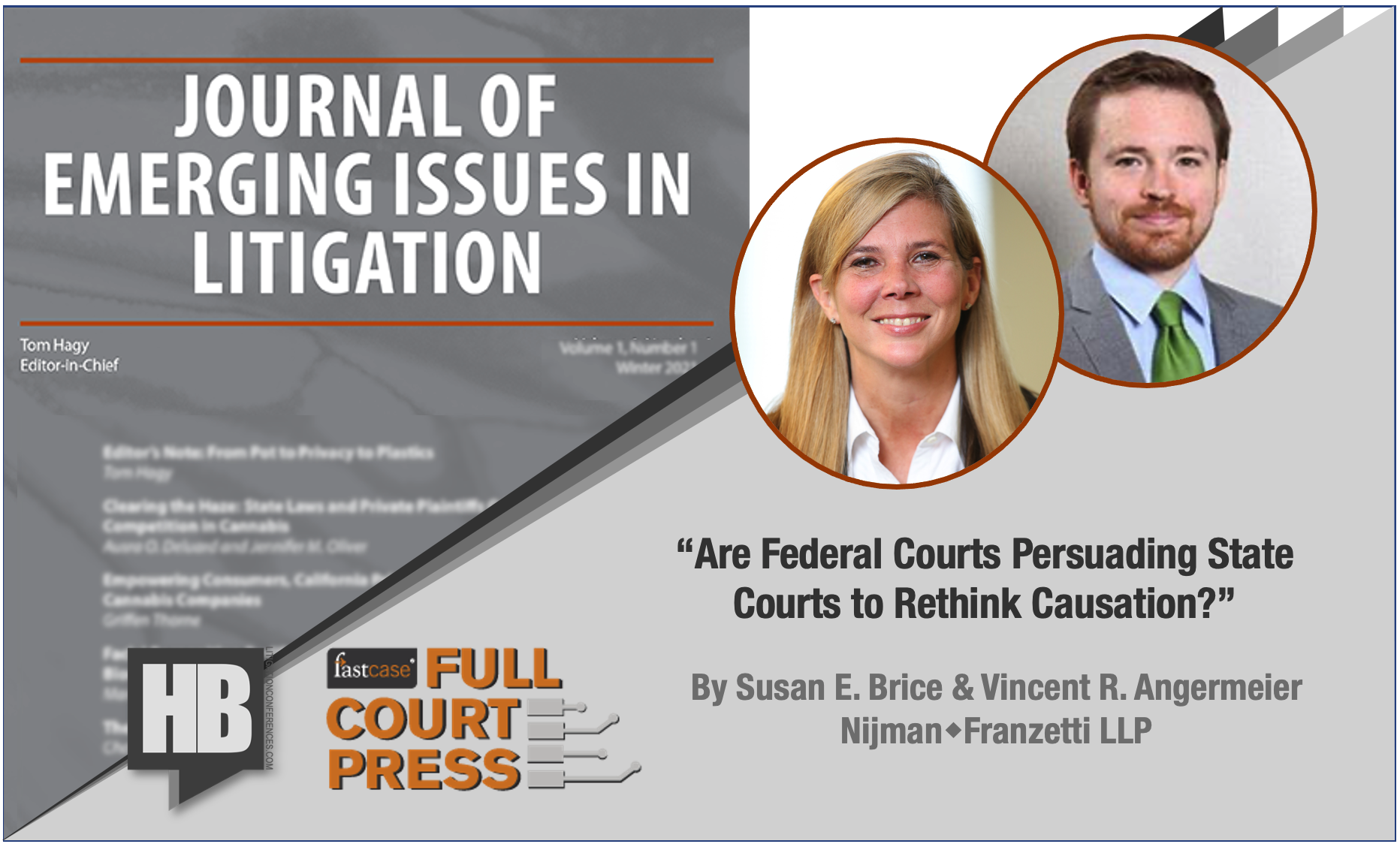Susan E. Brice and Vince Angermeier on Causation in Toxic Torts
Abstract
Concepts of “substantial factors,” “any exposure,” and “de minimis” contact have long-supported claims brought by toxic tort plaintiffs against manufacturers. They have furthered tort actions against defendants based on the “cumulative expo-sure” theory, particularly in the asbestos arena, even when a single fiber could not be connected to a specific defendant. But a 2017 Seventh Circuit decision dealing with Illinois law is part of a trend toward tightening up these standards. This article discusses the various cases on this threshold issue as the authors ponder whether this is a movement that needs some pushing.
Authors
Susan E. Brice (sb@nijmanfranzetti.com) is a partner at Nijman Franzetti, LLP. She has litigated state and federal disputes and has counseled clients on complicated scientific issues arising in environmental law, toxic torts, and product liability. Susan works with scientists on matters in the fields of genomics, toxicology, and epidemiology in industries such as chemical manufacturing, energy production, food, agriculture, and real estate.
Vince Angermeier (va@nijmanfranzetti.com) is Of Counsel at Nijman Franzetti, LLP, where he concentrates his work on CERCLA, EPCRA, RCRA, and Clean Water Act matters, a practice enhanced by his environmental engineering experience. Vince has assisted on civil litigation, administrative rulemakings, regulatory and compliance matters involving water, solid waste, and EPCRA reporting issues.
About
The Journal on Emerging Issues in Litigation is a co-production of HB, Fastcase, and Law Street Media. You can also hear the complementary (and complimentary) Emerging Litigation Podcast wherever podcasts appear. For questions, contact Tom Hagy, Editor in Chief, at Editor@LitigationConferences.com.


